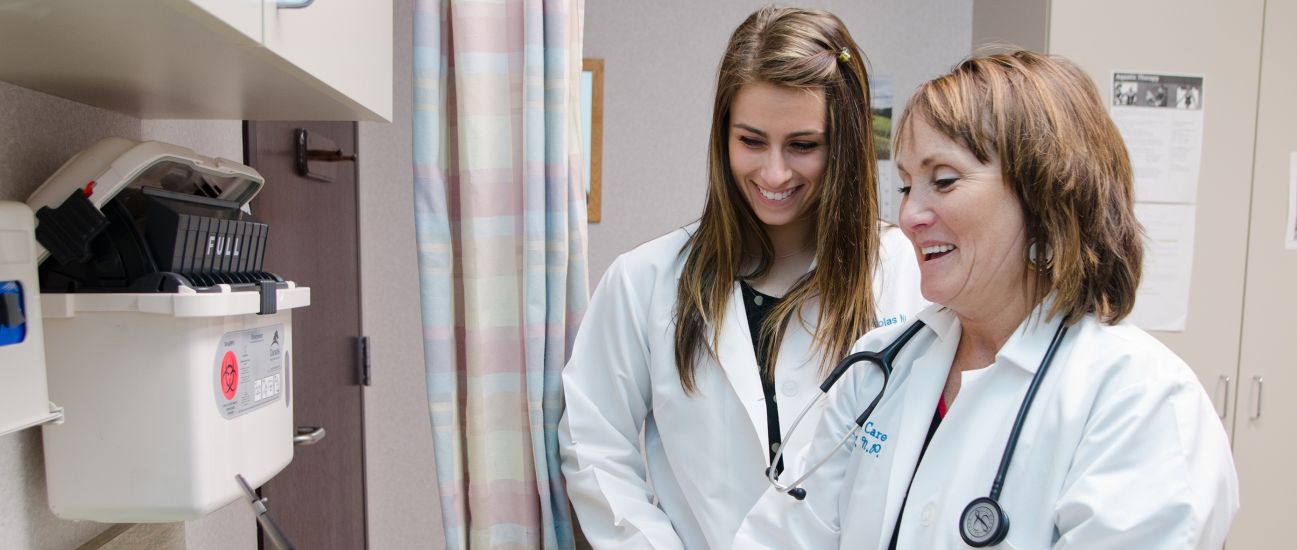Pre-Veterinary

As a pre-vet student, Carthage has numerous faculty/staff members to support your journey to professional school. Make sure you are working closely with your assigned faculty advisor to address any questions relating to your major or minor requirements. For questions regarding veterinary school requirements and preparation, please contact the science pre-health career specialist in The Aspire Center.
See the pre-veterinary timeline
These are the most common prerequisites for medical school programs. However, different schools may have different prerequisites on what classes you should take. Make sure to check your desired program’s website.
- 2 semesters of introductory biology (BIO 1110 and 1120)
- 2 semesters of general chemistry (CHM 1010 and 1020)
- 2 semesters of organic chemistry (CHM 2070 and 2080)*
- 1-2 semesters of physics (PHY 2100 and 2110 or PHY 2200* and 2210*)
- Advanced Cell Biology (BIO 3500)* ● Biochemistry (CHM 3010)*
- Human Anatomical Systems and Systemic Physiology (BIO 3300 and 3310)*
- 1 semester of statistics
- 2 semesters of English (COR 1200 and another course)
- Public speaking (CDM 1200)
- Introduction to Sociology (SOC 1000)
Other Suggested Courses
- Microbiology (BIO 3340)*
- Genetics (BIO 2400)*
- Introduction to Psychology (PYC 1500)
- Parasitology
- Vertebrae Ecology
*= prerequisites needed for a course
While Carthage students usually apply to somewhere between five and eight schools, you can apply to as many schools as you would like. However, you should be aware that there is a financial commitment associated with application fees and the cost of submitting materials for review. As such, you should only apply to schools you would genuinely consider attending.
Applications will be submitted through the VMCAS platform. This opens in January and if you are applying on attending right after your undergraduate degree you should apply in the spring of your junior year. It is recommended that you have all materials ready when the platform opens. Below is the list of application materials.
- Personal statement
- Shadowing hours
- Healthcare experience hours
- Volunteer hours
- Letters of recommendation
- GRE scores
- Transcripts (official copy)
